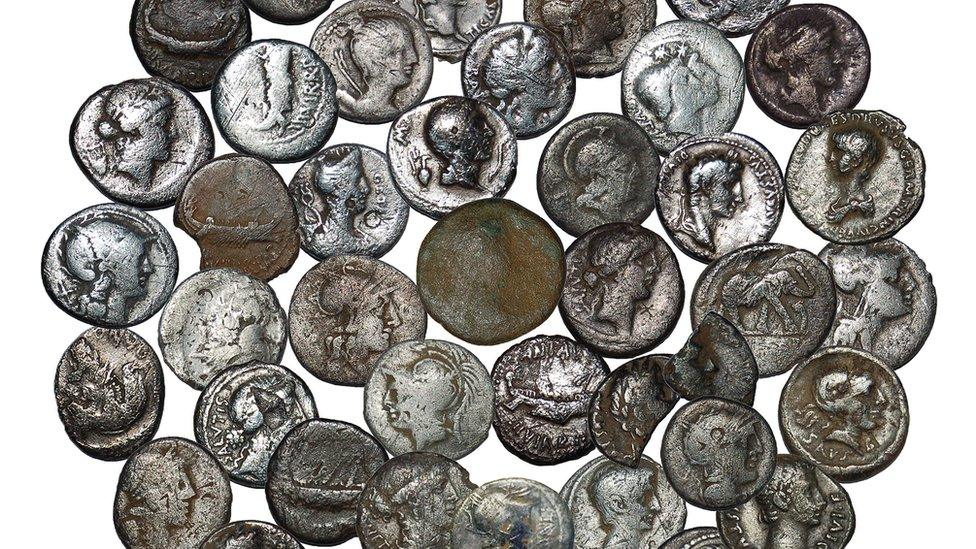Norwich detectorists describe Roman gold coin hoard find
- Published
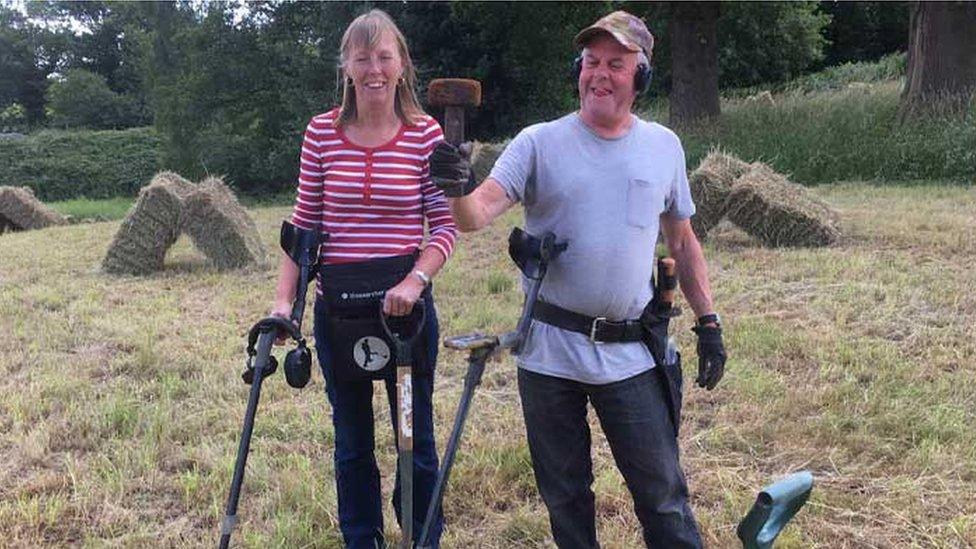
Denise and Damon Pye have been hooked on metal detecting since the late 1970s
"When I turned over the earth and found a yellow, shiny gold coin that had been there for 2,000 years, I had to sit down in the field," said Damon Pye.
He was describing the moment he and his wife Denise unearthed the first of an "exceptional" hoard of 11 pre-invasion Roman coins in a field near Norwich.
The metal detectorists found the first six coins in 2017 and have discovered the rest in the years since.
"Just when you think there's no more, another one turns up," Mrs Pye said.
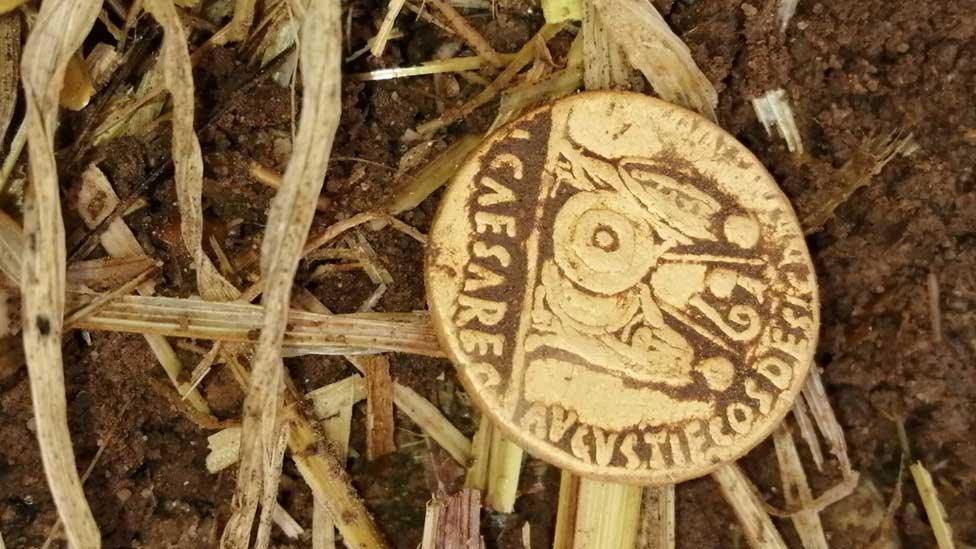
They have been unearthing coins most years since 2017 but now suspect they have found them all
The couple, who live in Norwich, had permission to search the field but had to wait until the harvest was finished in August 2017 to start detecting.
"We hadn't been in the field an hour, when 12 really poor quality bronze Roman coins turned up," Mr Pye, 72, said:.
"After lunch, we set off again and that's when I found the first gold coin.
"I immediately rang the farmer, who was absolutely delighted, and that's how it started."
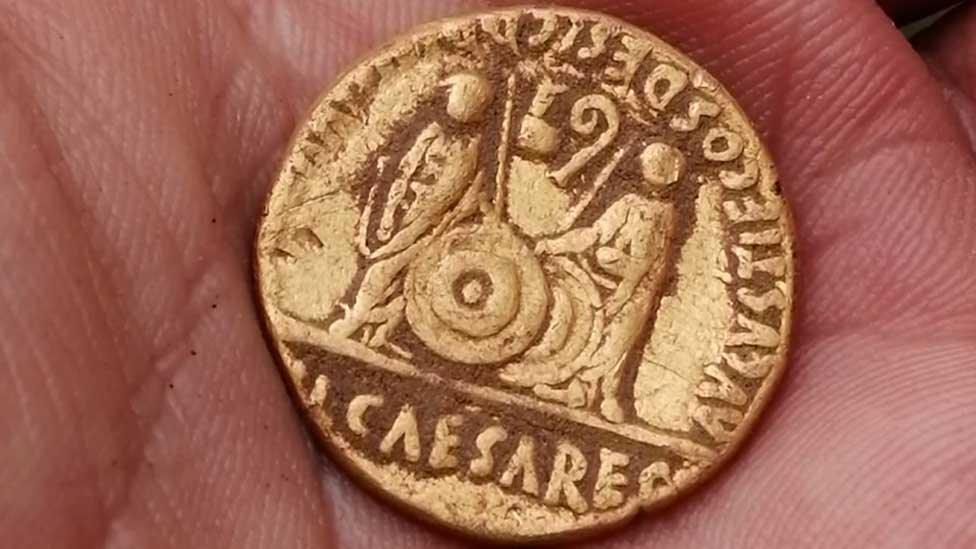
The couple found the seventh coin in 2019, the eighth and ninth in 2020 (one on Damon's birthday), the 10th in 2021 and the 11th in January
The semi-retired watch repairer went on to find five of the coins - known as aurei - that year.
Mrs Pye, 61, said: "I was gutted for me when he was the one who kept turning up the coins, but I was also very excited, and then I found the sixth coin - and I did my gold dance."
The couple have been metal detecting since the late 1970s.
"It's really good to find something that is rare and the experts are excited about," the takeaway cafe chef said.
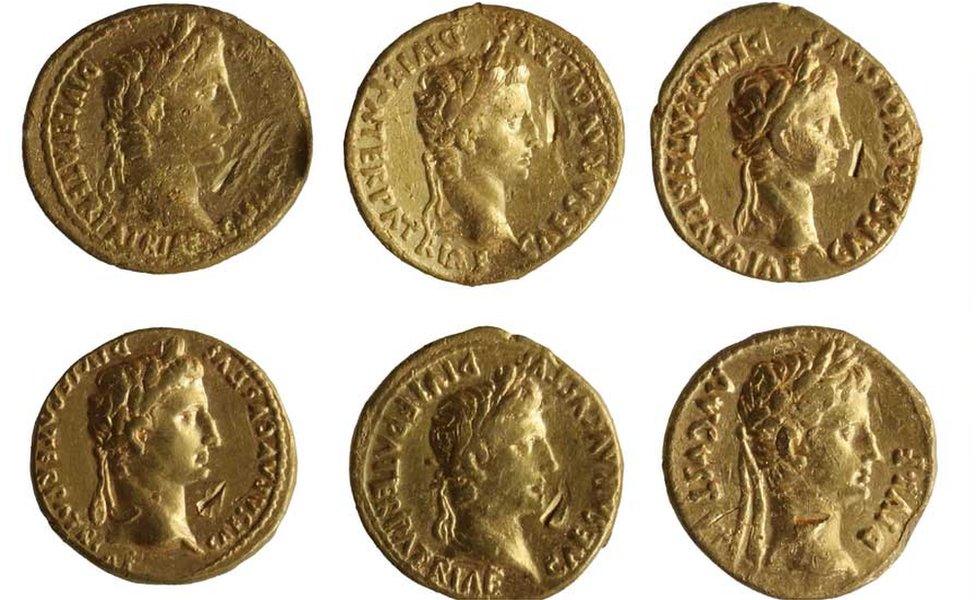
They all date to a generation before the Roman invasion in AD43 and were probably destined to be melted down to make Iron Age torcs
Roman gold coins are described as "rare" finds in Britain by Norfolk Historic Environment Service, external numismatist Adrian Marsden, "a fact reflected by the fact so few aurei of the first three centuries turn up as detector finds", he said.
These coins are "exceptional", external because they date to the last years of the 1st Century BC and the first years of the 1st Century AD - a generation before the Roman invasion in AD43.
The British Museum has so far bought all the coins, after they were deemed treasure by Norfolk Coroner's Court, external.

Metal detecting and the law
No search can begin until permission has been given by the landowner
All finds belong to the landowner
Any find in England, Wales and Northern Ireland that is more than 300 years old, made of gold or silver, or found with gold or silver artefacts, could be treasure under the 1996 Treasure Act, external
These must be reported to the appropriate county finds liaison officer, external
Source: Portable Antiquities Scheme

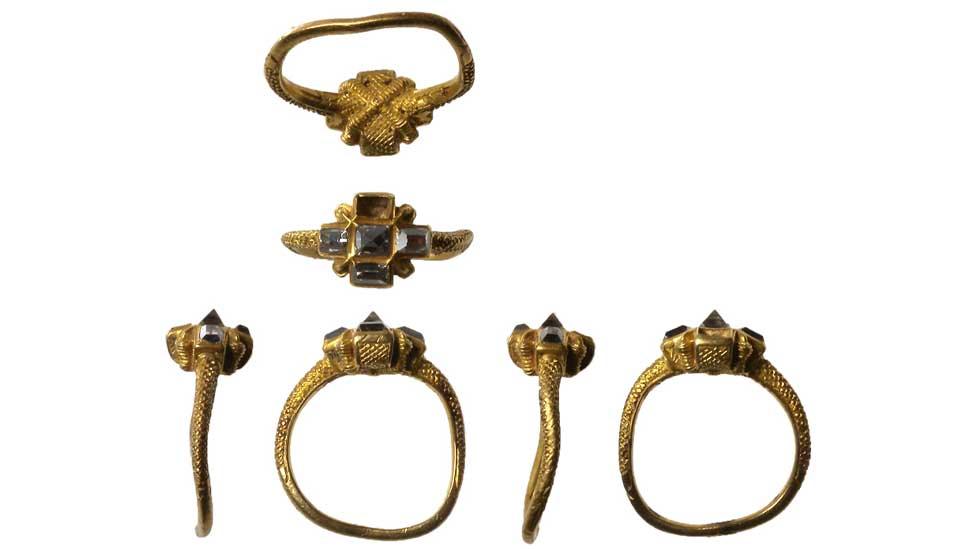
Mr Pye said it was not until 2011 that he found his first official piece of treasure, this 16th or 17th Century diamond ring
Mr Pye, who is vice-chair of Norwich Detecting, said hardly any of his finds over the decades had been deemed treasure.
"But a lot of the things I find are far more interesting than that - in the field with the coins I also found a lovely, late Neolithic leaf-type tool," he said.
"As long as I can walk, I'll keep metal detecting."

Mr Pye says finds such as this Neolithic-era (10,000 BC to 3,000 BC) leaf-type tool are more interesting to him than gold coins

Find BBC News: East of England on Facebook, external, Instagram, external and Twitter, external. If you have a story suggestion email eastofenglandnews@bbc.co.uk
Related topics
- Published1 July 2022
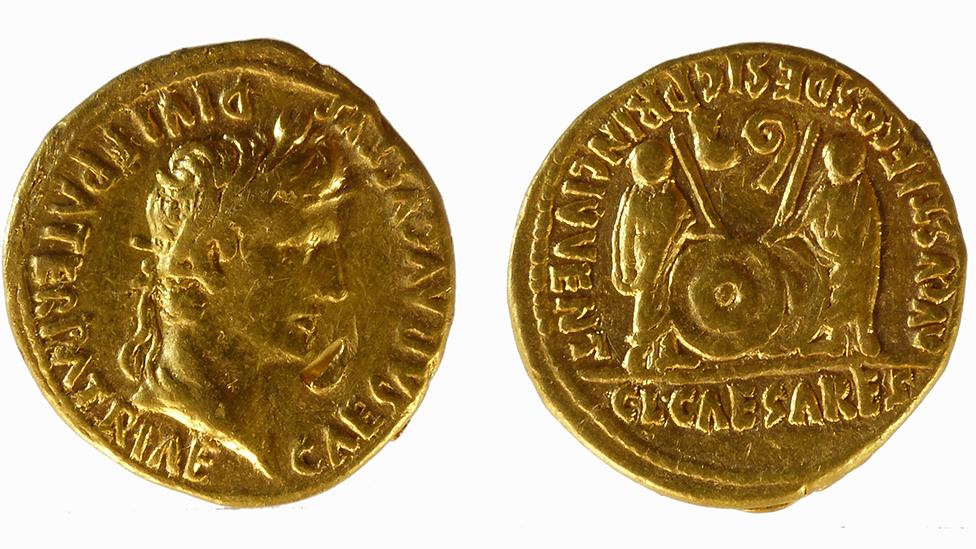
- Published19 December 2021
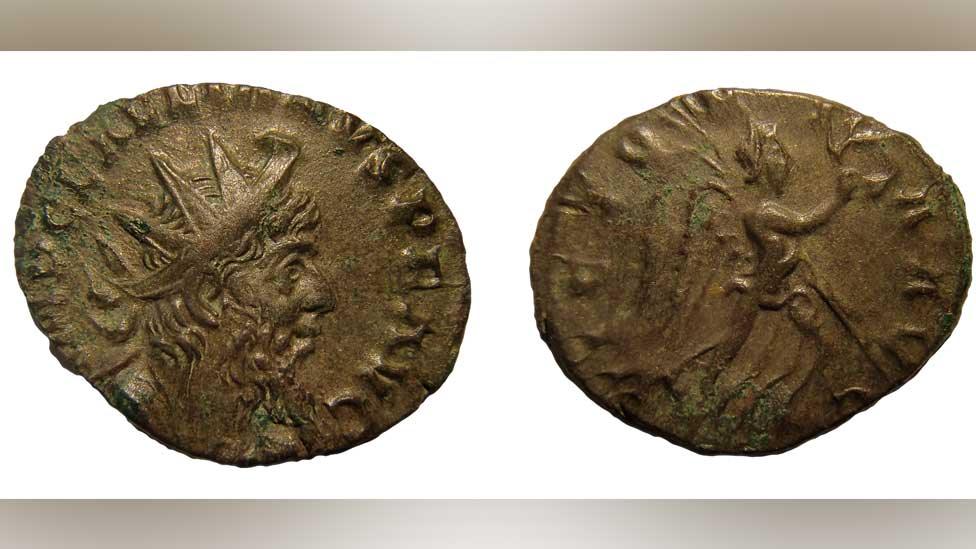
- Published29 November 2021
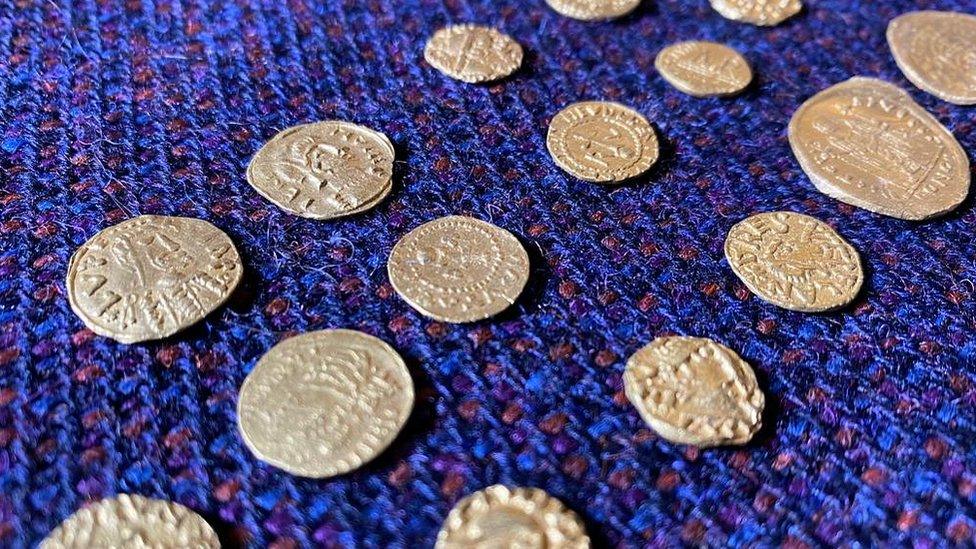
- Published24 November 2021

- Published4 September 2021

- Published7 December 2020
